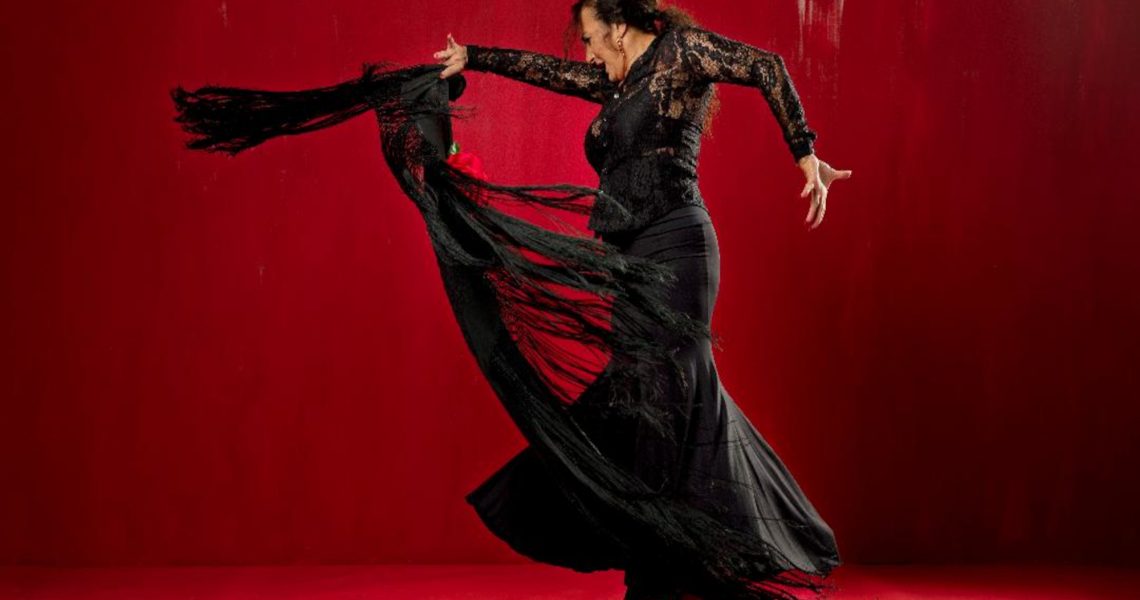The Duende of Flamenco
Welcome to this first blog on WhereToSeeFlamenco. I’m going to dive straight into the emotional deep end. Into the heart and soul of Flamenco. The duende. This is a term perhaps not known to many English speakers. Even to those who perhaps have seen Flamenco on visits to Spain. It is derived from “dueño de casa”, which means literally “master of the house”. But in Flamenco it has some varied and profound meanings and representations. I have to say right here that these are personal interpretations of the term. From my own journey into Flamenco.
Flamenco music is a swirling, dancing, singing mixture of emotions, attitude, feeling of love and sorrow, of joy and the bleakest darkness. Staring into a deep pit, a dark heart. It can be raw, jagged or exhilarating. Flamenco can take us to those terrifying, frightening places that we might otherwise avoid. And it can lift us to an ethereal joy. Give us a high. There is a spirit in Flamenco. A gut feeling. This emotion. And this is what might be termed the duende. Spanish people talk about “tener duende” or to have duende.
Now the duende is not unique to flamenco. It can be there in many performing arts. It comes from right down in the person. Perhaps when a Shakespearian play is performed, or a heart-rending poem, or in the blues music for example. Being a long term fan of the blues I can perhaps identify with this mostly strongly. Blues and flamenco both share roots in poverty, hardship, prejudice. Both are based on haunting minor scales. The blues scale with its tritone. Flamenco makes much use of the Phrygian mode with its minor second and that is much of the Flamenco melody of sound. The deep soul searching cliche of the blues performer is not altogether different to that of a Flamenco “cantaor” or singer.
The spirit of duende can also be materialised as a a fairy or a goblin like creature. Maybe even similar to Shakespeare’s Puck. And this was captured at a recent show I visited, at the Teatro del Soho in Málaga, entitled “El Árbol del Flamenco” or the Flamenco tree. WheretoseeFlamenco will have a full blog post coming up on this show. Save to say for the moment that the duende made skipping, fairy like appearances between the major parts and acted as a kind of connecting role or a segway.
That is a little bit of background to the duende. But how do we experience the duende ourselves? Of course this is a very personal thing. The duende comes from places deep inside of our soul. I didn’t experience the duende in the first few Flamenco shows that I went to. The shows were amazing for sure. For someone brought up on music such as David Bowie, Led Zeppelin, punk, reggae, and Jimi Hendrix they were something else. Or maybe not. The attitude in the dance. The costumes of course. But as I started to go to more Flamenco shows the duende slowly came. From that place inside. As it is, pure emotion.
How do we experience our duende? For me it is this energy. It is beautiful. Overwhelming. I have felt it a few times in meditation. It is the power of the universe. It is an energy rushing over me. It is electricity shooting through my veins. It is like that spine-tingling feeling we can get from songs or maybe the most poignant words. It is almost like a drug. Or a trance like state.
It would of course be interesting to find out how other people experience their duende. Maybe within Flamenco or elsewhere. Please feel free to comment on this blog. Is duende something that only a ‘privileged’ and ‘initiated’ few can experience? Only the greatest Flamenco artists have it? Duende is a gift that only a few of the greatest possess? I don’t believe that. Of course the greatest performers go to emotional spaces, where the rest of us never can go. They have talent and near artistic perfection that most people don’t have. They find their duende. But why can’t we all find duende? This power and energy and emotion can reside in all of us Flamenco is one way to turn on the taps and let that emotion and energy flow. In torrents. In ecstasy. We only have to be open to the duende.
I mentioned Jimi Hendrix above. And I remember the first time I ever heard his music. It was being played before I gig I was at. It was “All along the Watchtower” and that too was captivating, raw emotion, energy taking over my body. I stood there transfixed. I believe it was duende.
And I will return now to the derivation of the word, as I mentioned above: dueño de casa” or “master of the house”. Of course this can and does apply to those masters of the Flamenco art. Perhaps it applies to any master of any performing art. Flamenco, blues and jazz, actors at the theatre, poets. Maybe this elite few do feel and know a different duende.
I will close off this post with the definition of duende given by the Spanish poet Federico García Lorca. He defined “duende” as “a power, not a work; a struggle, not a thought”.
picture by Freepik
